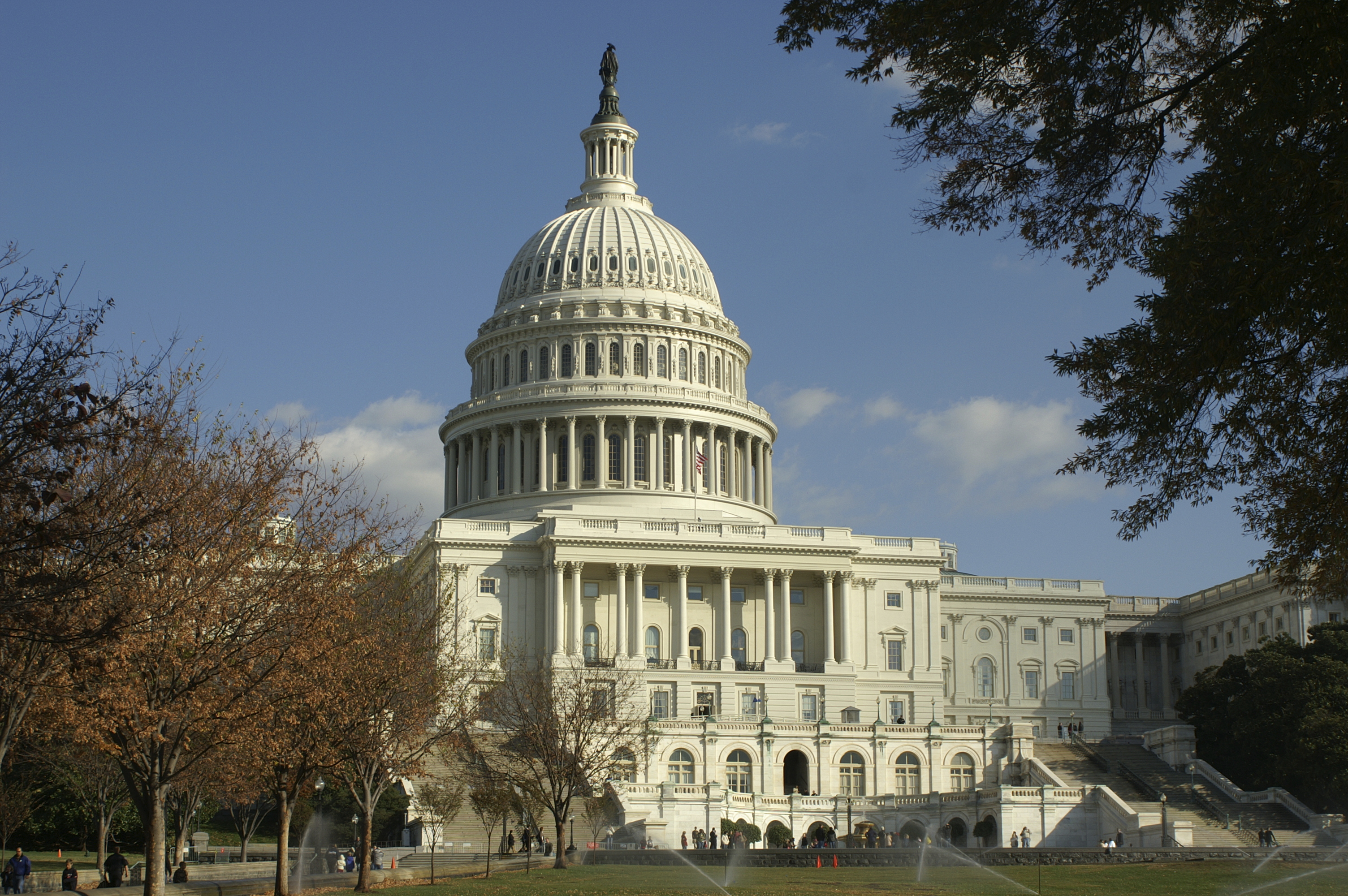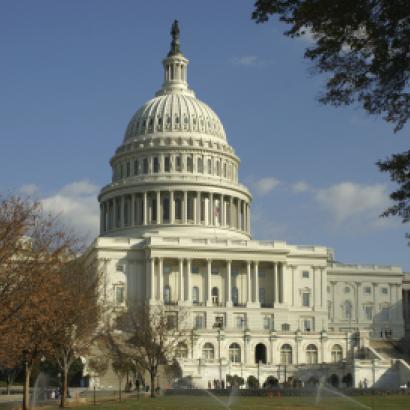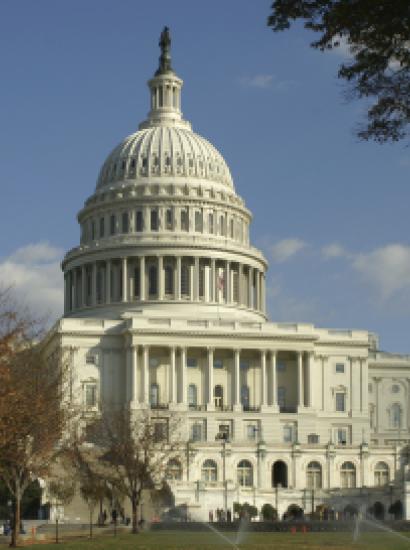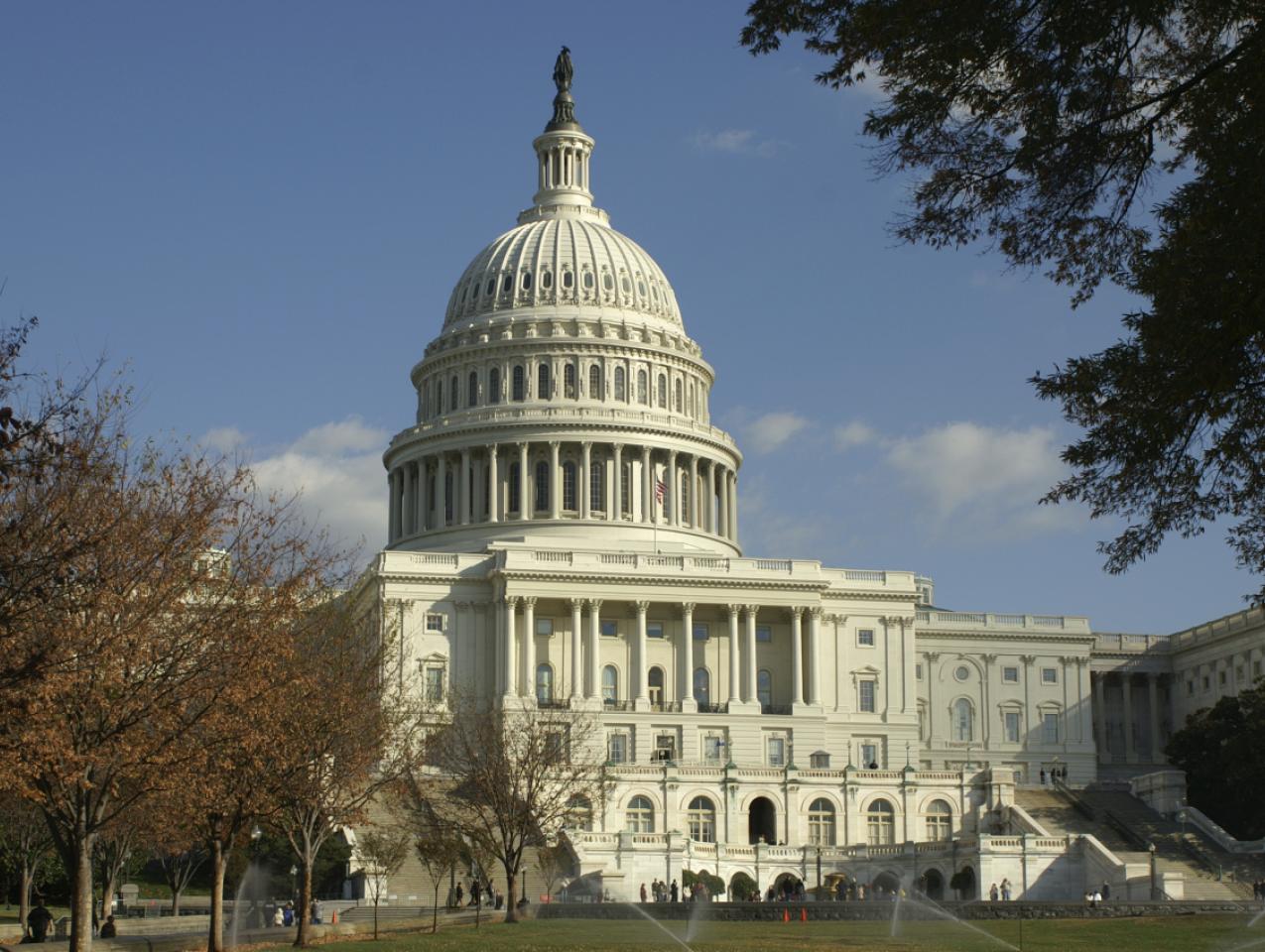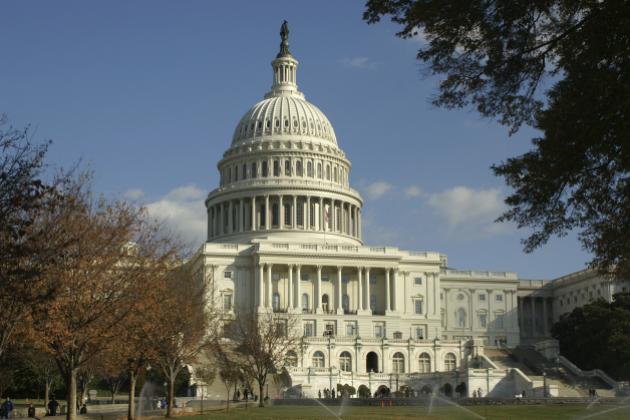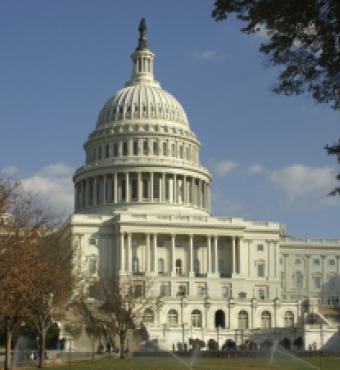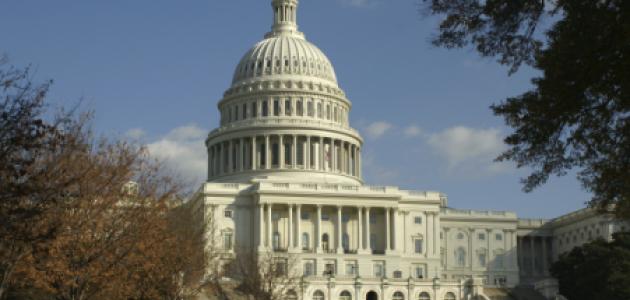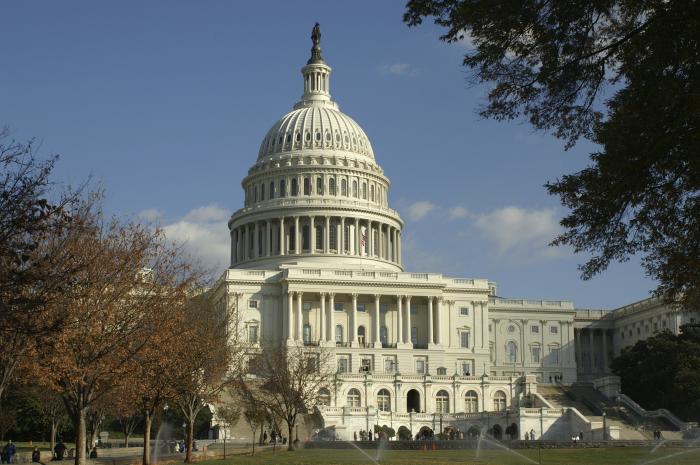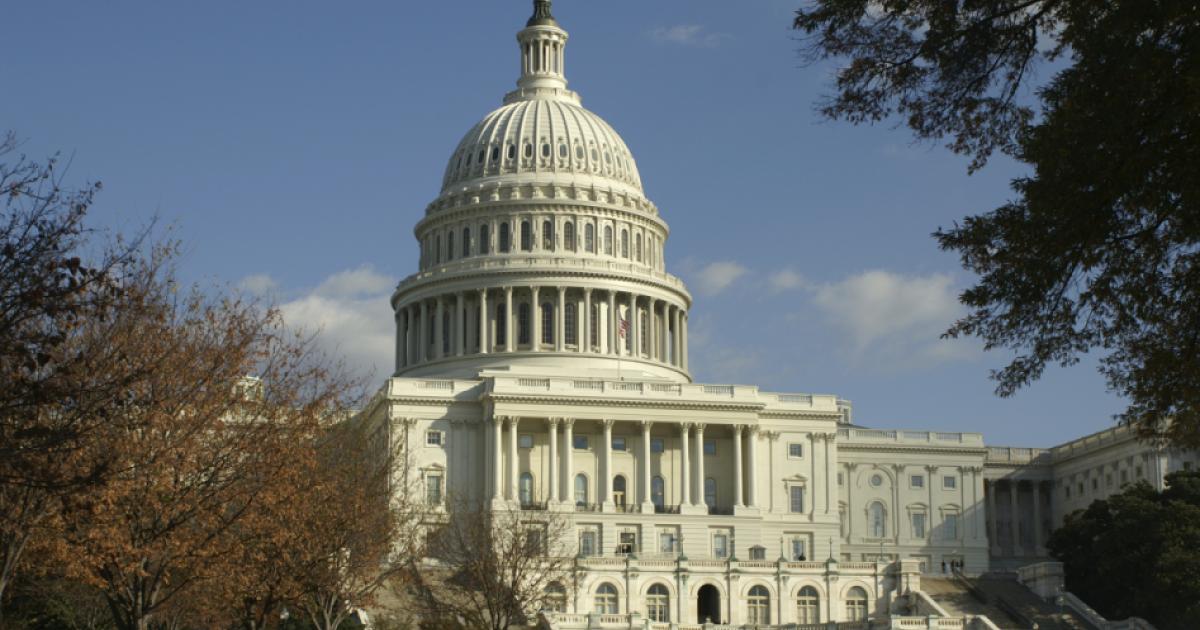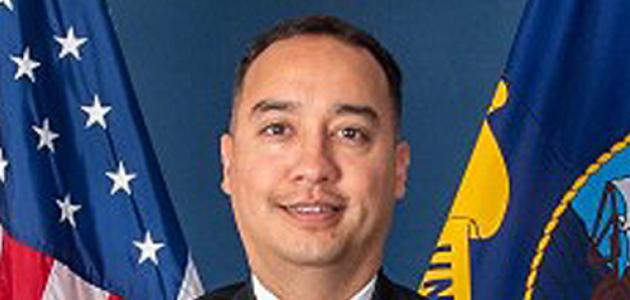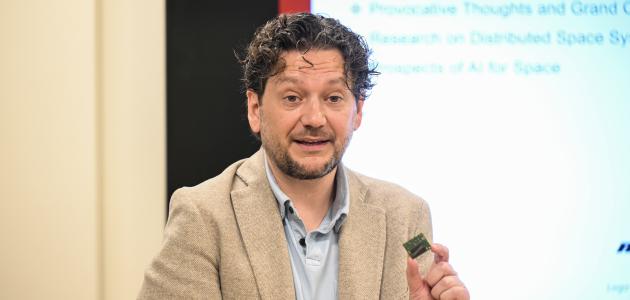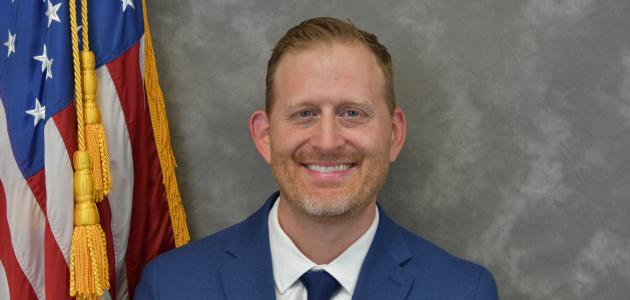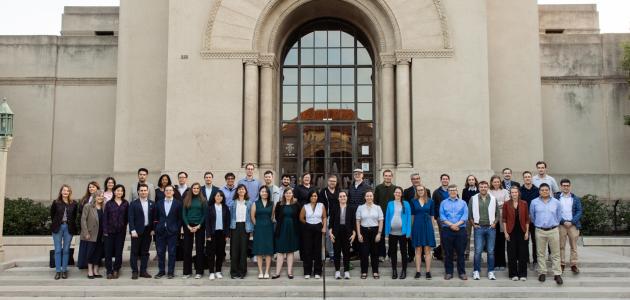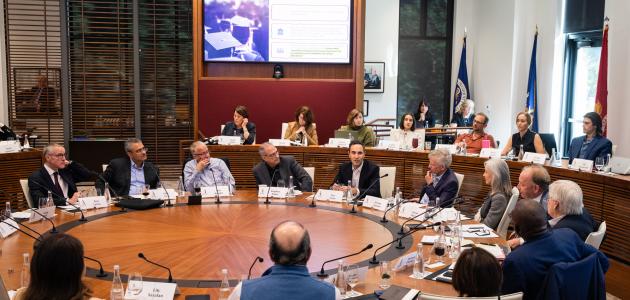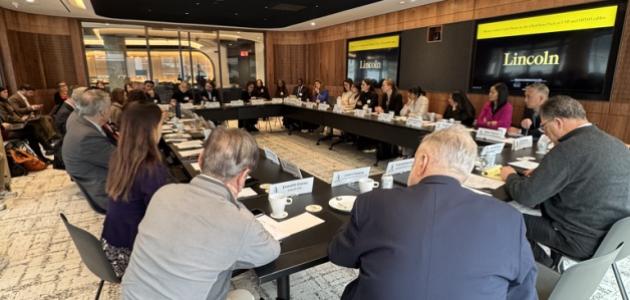One speaker after another seemed to echo the same themes: Be confident in the fundamental ideals and principles of freedom; be smart and bold in advancing and defending them.
These messages resonated in the rooms of the Willard InterContinental Hotel during Hoover’s annual Winter Board of Overseers Meeting, held each February in Washington, DC.
The event started with Peter Robinson, the Murdoch Research Fellow at Hoover, filming a live episode of the Hoover interview program Uncommon Knowledge with guest Senator Rob Portman (R-OH). A member of the Senate Finance Committee who was immersed in the recent tax reform legislation, Senator Portman offered the bill’s success as a reason for believing that America can overcome our very real challenges.
“[We are] starting to get stuff done,” Portman said. He recounted the rapid effect that the tax bill, along with steps to remove regulatory barriers from business, has had in the lives of his constituents, with small businesses able to start hiring again and even offering competitive benefits such as health insurance.
REFUSING TO SETTLE FOR SLOW, OR NO, GROWTH
Responding to critics of the tax reform legislation and free market policies, Portman said that his constituents, many of whom live paycheck to paycheck, do not think of the tax cut as “crumbs” (as described by one critic). Nor did he agree with analysts who claim that slow growth, along with heavy-handed economic intervention, is the “new normal.” He praised Hoover economists for providing invaluable advice to policy makers as they structured the tax bill. Their view, with which he agreed, was that investment freed up by sound fiscal policy would lead to sustainable growth in GDP.
Portman warned, however, that serious challenges remain—including entitlement reform and the US national debt—requiring continued belief in free market, limited government principles. Fidelity to those ideas, he asserted, guides leaders in making tough yet necessary political decisions.
Portman’s call to free market principles was repeated by Mick Mulvaney, director of the Office of Management and Budget, and Representative Cathy McMorris Rodgers (R-WA), chair of the House Republican Caucus. Both told Overseers that despite the difficulties of trying to restrain spending and overreach by the federal government, the tax reform bill had given the nation and policy makers a renewed vision and confidence in the in the idea that limiting government does, in fact, lead to more freedom, opportunity, and prosperity.
FACING CHINA’S CHALLENGE
Numerous foreign policy experts cited international challenges to American ideas and values. Immediate “hot” challenges discussed included Russia, North Korea, Iran, and state sponsors of terrorism. Yet one longer-term, overarching force that received multiple mentions by speakers was China.
To safeguard American principles of freedom and secure sustainable prosperity, speakers explained, the United States needs to recognize that China is using its increased prosperity to build and flex a growing military. But the solution to that problem, they said, would require not only faith in American ideals but wisdom to apply the right policies to this rising international challenge.
PRINCIPLES AND PRACTICE: MAINTAINING TRUST
Guest speaker Kimberley Strassel, columnist and editorial board member at the Wall Street Journal, spoke to Overseers about her reporting on current controversies surrounding the Department of Justice and the FBI. While cautioning that trust in the judicial system was tenuous due to politicization of numerous investigations, she had an upbeat observation: “We are currently seeing the biggest dismantling of the administrative state in our lifetime.”
That was echoed at the Hoover Institution’s DC headquarters as Overseers sat in on a discussion between Research Fellow Adam White, one of the country’s foremost experts on the administrative state, and Leonard Leo, executive vice president of the Federalist Society. A powerful conservative voice in the vetting of federal judicial nominations, Leo described progress in realigning the judiciary with the limited government principles shared by America’s founders.
BACK TO REAGAN AND THATCHER?
A bracing reminder came from the Right Honourable George Osborne, former chancellor of the exchequer of the United Kingdom and the William C. Edwards Distinguished Visiting Fellow at Hoover.
After recounting the many reasons conservatives could have for pessimism, Osborne identified three reasons to be “cheerful.” First, the Trump Administration has taken very concrete steps to deregulate, reduce taxes, and expand freedom and opportunity. Second, Europe may have passed the point of maximum danger of economic dissolution and political disintegration; he envisions the West “holding together.”
Finally, Osborne asserted, “Our ideas work—and it’s as simple as that.”
“We should have confidence in those ideas,” he continued. “We look to Reagan and Thatcher because they were confident that the best days lay ahead. And they were right to be confident. So for all the challenges we face, let’s remain confident in our ideas.”







